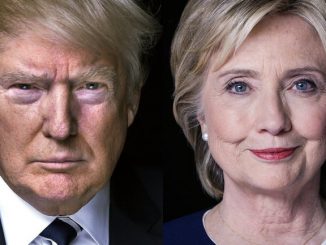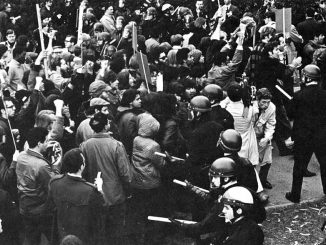In the elections most people have experienced, no matter how appealing the candidates seem, something remains exactly the same – the candidates are promising to run the system in our interests. Even so-called progressives like Bernie Sanders only promise better versions of the same system. They believe the best we can have is a slightly bigger paycheck, a slightly cleaner planet, slightly less expensive housing, and slightly less violent police. All they propose are reforms that they could never deliver even if they got elected. Is there anything else we can expect from elections?
In the workers’ movement we’ve had examples of different candidates – revolutionary workers who ran against the system itself. These candidates were workers like us, not lawyers or businessmen. They were leaders of struggles in the workplaces and their campaigns represented the activity of the working class. And they didn’t promise to make the system work. They ran to say workers like them have a right to decide what happens in society. They didn’t pretend the electoral system was a way to make a real change. They ran to expose its limits, calling on the working class to get organized to bring capitalism to a halt and build a world on new foundations – a socialist revolution.
Big Bill Haywood (1869 – 1928)
A miner who became a revolutionary leader, William “Big Bill” Haywood, was the leader of the Western Federation of Miners union, which fought and won union benefits after strikes and gun-battles with mine owners in Colorado. Haywood was convinced that all workers should come together and form “One Big Union” and end exploitation by taking the resources away from the rich and running them collectively in the interests of society. In 1905 Haywood and other labor leaders formed the Industrial Workers of the World (IWW), a revolutionary union dedicated to this.
In 1906, Colorado held elections after its reactionary and notoriously corrupt governor was killed under suspicious circumstances. Haywood and other IWW leaders were thrown in jail and accused of the murder. From his jail cell, Big Bill Haywood ran for governor of Colorado on the Socialist Party ticket. In the minds of the miners, his candidacy represented their struggle in the mines and hills. A vote for Haywood was a way for thousands of miners to signal their willingness to struggle. Haywood didn’t want to be governor – that wasn’t the point. Haywood’s campaign was an organizing drive and every campaign rally enrolled workers in the IWW, spreading the message of socialism – organize yourselves for the revolution. No wonder they called Haywood the “Lincoln of Labor” – he called for the abolition of a different kind of slavery – wage slavery.
Eugene Debs (1855 – 1926)
Eugene Debs was a railway worker who became the most famous socialist in U.S. history. Debs began organizing in the Brotherhood of Locomotive Firemen. At first Debs believed in bargaining with the bosses for mutual benefit. He became a Democrat, elected to the Indiana state assembly in 1884. But his ideas changed when the railway companies plunged workers into a bitter struggle. In 1894, a strike of workers at the Pullman company was crushed by the railway companies. The companies worked together against the workers and they relied on the government to call out federal troops. Debs realized that there’s no point in bargaining if the state will always support the employers. Debs was jailed for participation in the strike. While in jail, he read books about socialist ideas and became convinced that workers needed to transform society by revolutionary means.
From 1900 to 1920, Debs became the presidential candidate of the Socialist Party. A vote for Debs was a vote for a workers’ leader formed in struggle. The most important campaign of Debs’ life took place in 1920. As the world was dragged into World War I by the profit-seeking companies and their governments, Debs and other socialists spoke against the war. Debs was thrown in jail, where he then ran for president. A million workers around the U.S. voted for Debs. They did not pretend they were going to elect him. They cast their votes against war and for socialism. A million workers signaled their readiness to struggle for those goals.
Today we face attacks on our wages and working conditions, brutal wars waged in our name, and politicians who promise nothing but varieties of the same system. During this election, it’s worth remembering that we don’t have to simply choose between politicians. We should focus on building our power by organizing ourselves in our workplaces, neighborhoods or wherever else we are. If we do, then workers could begin to raise the question of socialism and revolution in the elections as Haywood and Debs did a hundred years ago.



